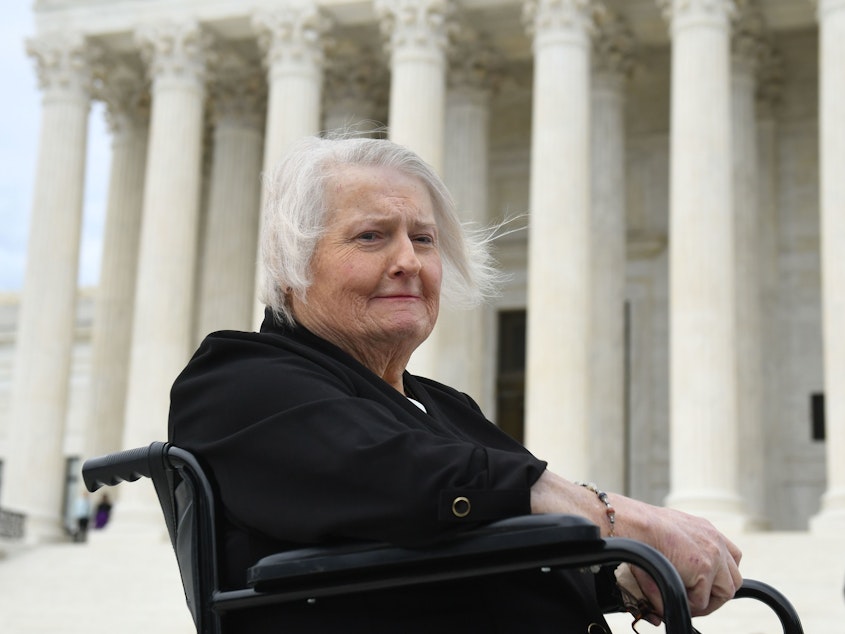Supreme Court Delivers Major Victory To LGBTQ Employees

The U.S. Supreme Court ruled Monday that the 1964 Civil Rights Act barring sex discrimination in the workplace protects LGBTQ employees from being fired because of their sexual orientation.
The vote was 6-to-3, with conservatives Chief Justice John Roberts and Neil Gorsuch joining the court's four liberal justices in the majority.
The court's decision came in several cases brought by gay and transgender employees.
Gerald Bostock was the child welfare coordinator for Clayton Country, Ga. He contends he was fired after he joined a gay recreational softball league in 2013.
"From that point on, my life changed," he said in an NPR interview last October. Up until then, he said, his job evaluations had been excellent, and under his guidance, the county "reached the benchmark of serving 100 percent of the children in foster care, which was an unheard of milestone in any metro Atlanta program."None of that seemed to matter, however, when word got out that he had joined the gay softball league. "I lost my livelihood. I lost my medical insurance, and I was recovering from prostate cancer when this occurred," he said. "It was devastating."
Aimee Stephens, presented as a man for six years, working as a funeral director for the Harris Funeral Home in Livonia, Mich. But by 2012, Stephens was in despair over her gender identity, at one point contemplating suicide."I stood in the back yard with a gun to my chest. But I couldn't do it," she told NPR last October.
Sponsored
Instead she decided to come out at work as a transgender woman, telling her colleagues and her employer of her decision in a letter. But two weeks after giving the letter to her boss, she was fired.
Stephens died earlier this year, but her case lived on.
Tom Rost, the owner of the Harris Funeral Home, who fired Stephens, explained his decision as one necessitated by the reaction he anticipated from "the families we serve. How would they possibly react to this?" he said, noting that Stephens was "the face of the Harris Funeral Home." [Copyright 2020 NPR]



